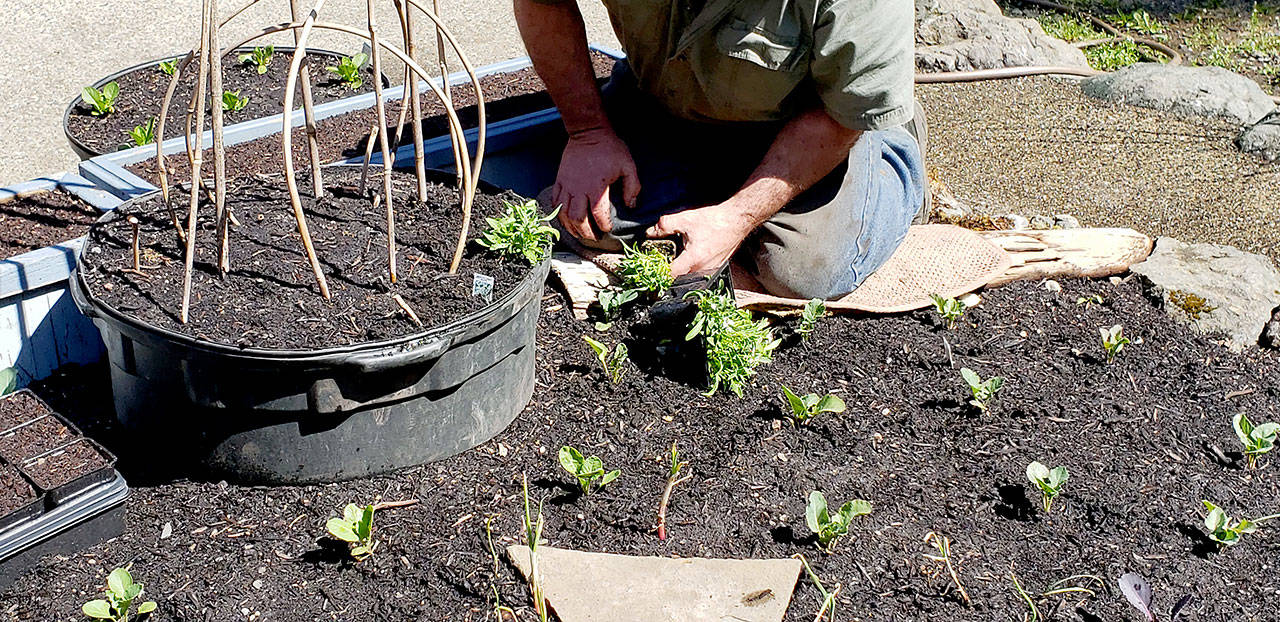I DO NOT want to waste any time not immediately getting to my great concern and worry because the implications could ruin your garden.
Every year in mid-April, it happens — vendors put out certain plants with no warnings or instructions. Ten days ago I was aghast at marigolds, zinnias, geraniums and begonias already being put on racks for sale without a disclaimer saying do not plant outside until mid-May or beyond June 1.
Then yesterday, here I was in a greenhouse buying onion starts (perfect time of year) and there were tomatoes, basil, squash, even peppers out for sale — and people were buying them.
Let me make this crystal clear: unless you have a greenhouse, do not plant any of these outside for a month. No, nada, no way Jose, don’t even think about it.
Repeat after me “The first of June is none too soon!”
We have plenty of work to do and numerous things to plant now so please, if you want to throw your money away, do not buy “warm soil” plants for a month and if your money is burning a hole in your pocket, send it to me. At least I will buy something useful like beer.
But with that said, what I did buy Wednesday, and was so pleased that they were available, was sweet alyssum.
We talked last week about flowers in the garden to attract the pollinators and how beneficial it is to crops like peas and beans, and planted early, flowers now bring in bees to help with the orchard and berries as well.
Well, we are also fortunate enough here on the Peninsula to have our very own indigenous and useful “alien predator.”
There is a local, tiny parasitic wasp that is attracted to the honeydew secretions of aphids. Once it hones in on the scent, it then lays its eggs in the body of said aphids. The egg hatches and the larvae eat its way out. It just so happens that this wasp feeds on nectar from flowers, and the fragrant sweet alyssum is an ideal smorgasbord. Planting now before aphids are present brings in the predator before the prey numbers start to explode.
It’s all about flattening the “pestilent curve.”
In fact in your vegetable garden, flower beds, roses and landscaping it is all about sound cultural practices. If you follow a best practices approach, then you can eliminate 80 percent or more (most often way more) of the habitat, food and conditions necessary for insects, mold and diseases to flourish.
I’m sure most all of you have heard about watering early in the morning and not at night. By watering early in the morning, not only is moisture and nutrients available at the peak requirement for the day but the soil, come our cool evenings is dry.
Almost all plant diseases and most bugs really need damp conditions to multiply, so dry plants and soil by noon along with the sun and wind really suppresses their reproduction and establishment.
Next, in eliminating habitat is to always be on the lookout not only for dead plant parts but those that are drying (think yellowing).
Many diseases enter a plant through dead or drying material and the decomposing process feeds them.
By eliminating all old, dead, yellow, sickly leaves you dry up that source.
Also, flower tissue is very fragile and rots and slimes away quickly so always be removing dead flowers — always. In fact, it benefits your plant as well.
All living things exist to reproduce and when you remove flower heads before they make seed pods the plant response by growing more vigorously. A healthy plant, growing very well with no old flower heads or dead/dying foliage and stems is a plant far better able to resist problems that the natural world will throw at them.
Next, cultivate your soil regularly and weed. Breaking up the soil crust greatly improves the soil fertility and weeds are a major source of insects and diseases because they grow thick and thus are damp all day.
A dry, soil is a real problem killer.
And finally, do not marry your plants. The runt of the litter is always the runt and there is always a reason why. Weak, yellow looking plants should be trashed. If one plant develops bugs, trim it down or throw it away because that alone will save you 50 percent of gardening problems.
Well, enjoy the week, I am glad I can give you some chores to stay busy — stay well all.
________
Andrew May is a freelance writer and ornamental horticulturist who dreams of having Clallam and Jefferson counties nationally recognized as “Flower Peninsula USA.” Send him questions c/o Peninsula Daily News, P.O. Box 1330, Port Angeles, WA 98362, or email news@peninsuladailynews.com (subject line: Andrew May).

